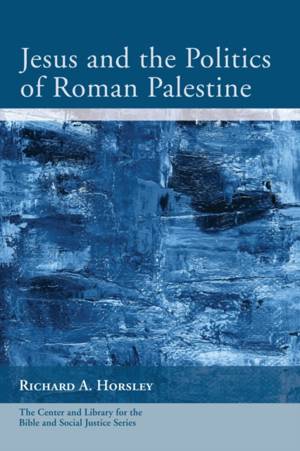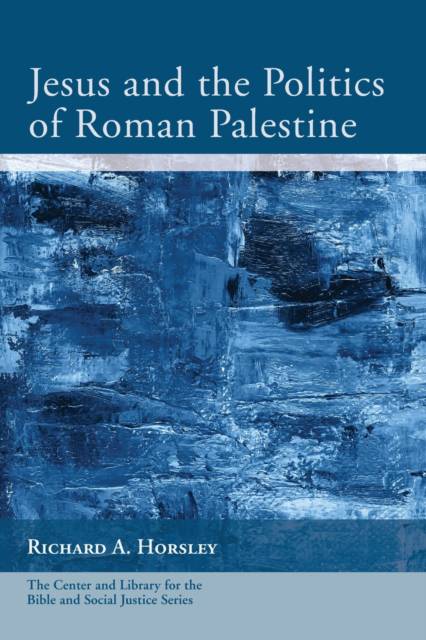
- Afhalen na 1 uur in een winkel met voorraad
- Gratis thuislevering in België vanaf € 30
- Ruim aanbod met 7 miljoen producten
- Afhalen na 1 uur in een winkel met voorraad
- Gratis thuislevering in België vanaf € 30
- Ruim aanbod met 7 miljoen producten
Zoeken
Omschrijving
In Jesus and the Politics of Roman Palestine, Richard A. Horsley offers one of the most comprehensive critical analyses of Jesus of Nazareth's mission and how he became a significant historical figure. Horsley brings a fuller historical knowledge of the context and implications of recent research to bear on the investigation of the historical Jesus. Breaking with the standard focus on isolated individual sayings of Jesus, Horsley argues that the sources for Jesus in historical interaction are the Gospels and the speeches of Jesus that they include, read critically in their historical context. This work challenges the standard assumptions that the historical Jesus has been presented primarily as a sage or apocalyptic visionary. In contrast, based on a critical reconsideration of the Gospels and contemporary sources for Roman imperial rule in Judea and Galilee, Horsley argues that Jesus was fully involved in the conflicted politics of ancient Palestine. Learning from anthropological studies of the more subtle forms of peasant politics, Horsley discerns from these sources how Jesus, as a Moses- and Elijah-like prophet, generated a movement of renewal in Israel that was focused on village communities. This paperback edition is updated with a new preface, bibliography, and indexes.
Specificaties
Betrokkenen
- Auteur(s):
- Uitgeverij:
Inhoud
- Aantal bladzijden:
- 260
- Taal:
- Engels
- Reeks:
Eigenschappen
- Productcode (EAN):
- 9781666707427
- Verschijningsdatum:
- 11/11/2021
- Uitvoering:
- Paperback
- Formaat:
- Trade paperback (VS)
- Afmetingen:
- 152 mm x 229 mm
- Gewicht:
- 390 g

Alleen bij Standaard Boekhandel
+ 91 punten op je klantenkaart van Standaard Boekhandel
Beoordelingen
We publiceren alleen reviews die voldoen aan de voorwaarden voor reviews. Bekijk onze voorwaarden voor reviews.











